
Welsh researchers have made a major breakthrough in diagnosing bowel cancer
A simple blood test developed by Welsh experts could lead to bowel cancer patients being diagnosed much earlier and significantly improve their chances of survival (WalesOnline, 2016). Initial signs are so promising the test could become used throughout the NHS within the next few years, with a clinical trial starting in GP practices across Abertawe … Continue reading Welsh researchers have made a major breakthrough in diagnosing bowel cancer
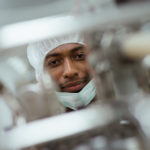
Manchester Molecular Pathology Innovation Centre announces strategic collaboration with Singulex
The University of Manchester has announced a strategic collaboration with US company Singulex, a leader in the use of single molecule counting technology as a diagnostic tool (The University of Manchester, 2016). Singulex has installed its SMCTM powered Sgx ClarityTM System in the Manchester Molecular Pathology Innovation Centre (MMPathIC) labs as part of its ongoing … Continue reading Manchester Molecular Pathology Innovation Centre announces strategic collaboration with Singulex
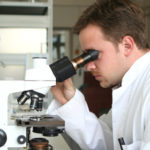
Genetics links sleep disturbance with restless leg syndrome, schizophrenia and obesity
A team of American and British scientists have discovered genetic connections between sleep disturbance and a range of medical disorders including obesity (The University of Manchester, 2016). Lead author Dr Jacqueline Lane, postdoctoral fellow at Massachusetts General Hospital (MGH) and joint senior authors Richa Saxena, Assistant Professor of Anaesthesia at the MGH and Harvard Medical … Continue reading Genetics links sleep disturbance with restless leg syndrome, schizophrenia and obesity
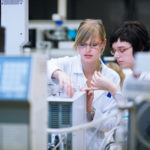
Laser treatment prostate cancer is a potential game changer
Scientists at University College London have made what they believe is a real breakthrough for prostate cancer, long seen as the Cinderella of cancers, using a drug derived from bacteria found at the bottom of the sea, injected into the bloodstream and activated in the prostate by laser beams (The Guardian, 2016). The treatment has … Continue reading Laser treatment prostate cancer is a potential game changer

Further evidence found for causal links between cannabis and schizophrenia
A study by the University of Bristol’s School of Experimental Psychology has found people with a greater risk of developing schizophrenia are more likely to try cannabis (University of Bristol, 2016). Earlier this year scientists warned about the increased risk of psychosis for vulnerable people who use cannabis. Their warnings followed evidence suggesting an increased … Continue reading Further evidence found for causal links between cannabis and schizophrenia
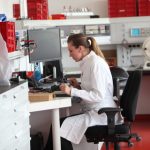
Cardiff University developing low-cost tool for dementia assessment
Cardiff University has been awarded around half a million pounds to develop a low-cost cognitive tool for dementia assessment in low and middle income countries (LMICs) (Cardiff University, 2016). Expanding on existing work at Cardiff University and the University of California, San Francisco, the new project will generate novel tablet-based tools for dementia diagnosis, in … Continue reading Cardiff University developing low-cost tool for dementia assessment

Scientists trial a living bandage for knee injuries
A living bandage made from stem cells, which could revolutionise the treatment and prognosis of meniscal tears, a common sporting knee injury, has been trialled in humans for the first time by scientists at the Universities of Bristol and Liverpool (University of Bristol, 2016). Meniscal tears are suffered by over one million people a year … Continue reading Scientists trial a living bandage for knee injuries

Scientists identify a cause and possible route to treat ALS
A team of researchers, lead by Professor William Griffiths of Swansea University Medical School and Professor Martin Turner of the University of Oxford, have published the results of a study that shows for the first time people with ALS (Amyotrophic Lateral Sclerosis) have higher levels of cholesterol in the fluid surrounding the brain than people … Continue reading Scientists identify a cause and possible route to treat ALS
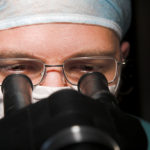
Bristol University researchers looking for dogs with osteoarthritis for new study
The University of Bristol’s School of Veterinary Sciences is asking owners of dogs showing signs of osteoarthritis to take part in a first study of its kind to find out whether an omega-3 oil derived from algae can help dogs with osteoarthritis (University of Bristol, 2016). Docosahexaenoic acid (DHA) is an omega-3 fatty acid found … Continue reading Bristol University researchers looking for dogs with osteoarthritis for new study

Organic crystal research secures EU funding
A University of Bristol-led international project investigating a new method of controlling the growth of organic crystals has been awarded €2.9m in Horizon 2020 funding (University of Bristol, 2016). The MagnaPharm project aims to direct polymorphism in pharmaceutical compounds by crystallising them in high magnetic fields. The ability to direct polymorphism would have a transformative … Continue reading Organic crystal research secures EU funding








